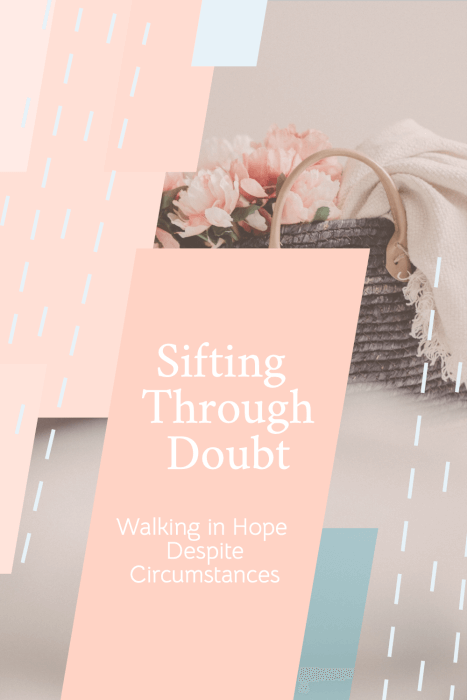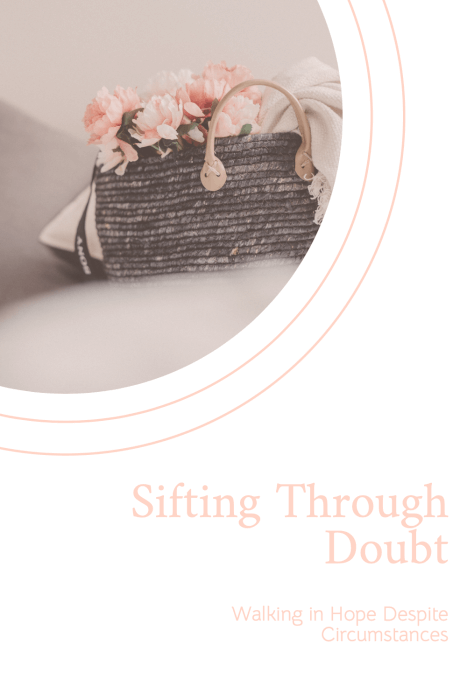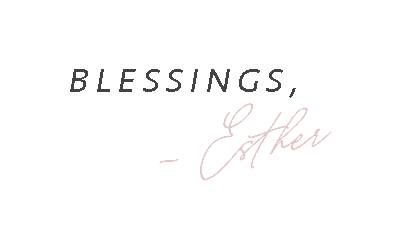I walked over to the sink, squeezed out the contents, and continued to clean up the broken jar, an economy-sized jar that filled the house with the tart smell of pickles. Like that sponge, my heart was filled with a sour smell of doubt—not a doubt in God’s ability but His willingness in my life.
“Can these dry bones live again?” Ezekiel 37:3
The million dollar question God asked Ezekiel and the one question I found hard to answer. Most of us are very familiar with the circumstances surrounding our lives. We live with them every day, walking back and forth through the valley, surveying the effects of a broken world, and living with the outcome of broken ways. And if we’re not careful, what our eyes perceive becomes the reality of what our hearts believe. The over-awareness of our situation overshadows our awareness of God’s presence, protection, and provision. Our eyes remain fixed on life rather than the Giver of life. But the question remains, do YOU think these dry bones – the insurmountable obstacle in your life – can live again?
Friends, before we can fill our hearts with hope, we must sift through the doubt, disappointment, and despair, allowing God to separate the lies, hurts, and confusion. We have to squeeze out the sponge of our hearts and get rid of the doubt filling our thoughts with a sour smell.
The Sour Smell of Doubt
The path to rediscovering hope starts by confronting our doubts. It’s a process of emotional and spiritual decluttering, where we allow God to sift through the layers of disappointment and despair, separating the chaff of lies and confusion. This act is not passive; it demands our engagement. We must be willing to “squeeze out the sponge” of our hearts to rid ourselves of the sourness that taints our perspective.
Doubt is the enemy’s first-hand man. In Genesis 3:1, doubt is what the enemy uses to cause confusion, shifting Eve’s eyes from all that she had to the one thing she couldn’t have. If doubt could do that with someone who physically walked with God and whose eyes were filled with the glory of the Creator, how much more can it do in our lives? Even the smallest doubt has hurricane power to uproot mustard trees of faith.

What is Biblical Hope?
Hope is not whimsical or unfounded optimism. It is the very fuel for endurance, an anchor for our souls amidst life’s tumultuous seas. It invites us to persevere, to recognize that the night’s darkest hour is just before dawn. Hope lifts our gaze from the immediacy of our problems to the eternal assurances of God. It’s the promise that our present trials are but fleeting in the grand scheme of eternity, ensuring us that hope “does not disappoint” (Romans 5:5).
Misplaced hope, on the other hand, indeed does. Misplaced hope places trust in a person or an outcome and leaves you and me open to disappointment. Hopelessness drains the energy to fight, leaving us gasping for air—paralyzed by pain. Misplaced hope leads to false beliefs we hold closely, paving the way for hopelessness when things don’t quite work out as planned. Misplaced hope is a feeling rather than the faithful Father.
Distinguishing Between the Voices
Understanding the distinction between misplaced hope and His divine assurance of hope is pivotal. Misplaced hope urges us to fixate on outcomes, breeding worry and confusion. In contrast, God’s voice of hope encourages us to “gaze upon the lifter of your head,” promising peace, direction, and reassurance. It is a voice that whispers, “I will never leave you nor forsake you,” and invites us to trust in His unfailing love and perfect plan. Amidst the deserts of doubt that we all inevitably traverse, our next steps are crucial. They either lead us further into disillusionment or toward the oasis of authentic hope. Mark 9:23-24 resonates deeply in this context, a sincere plea for divine intervention in overcoming our unbelief.
Misplaced hope or hope in the situation:
- Creates an obsession over the people or outcome.
- Fans into flame worry and fear.
- Clouds our vision with confusion and discouragement.
- Shouts “Hurry! Do something!”
God’s voice of hope:
- Calls you to gaze upon the lifter of your head.
- Whispers encouragement to comfort and calm an anxious heart.
- Leads the way and enlightens each step.
- Reassures you that “He’s doing something.”

The Power of Perspective To Overcoming Doubt
We all face deserts of doubt, but what we do with that doubt determines our destination. Learning to recognize the pitfalls of misplaced hope and destructive thinking starts with a cry, “I do believe; but help my unbelief!” Mark 9:23-24 The power of perspective cannot be underestimated when it comes to hope. When we shift our focus from the temporary to the eternal, our problems become smaller in comparison to God’s sovereignty and promises. Romans 8:18 declares, “For I consider that the sufferings of this present time are not worth comparing with the glory that is to be revealed to us.” Our hope should no longer rest in our own strength or efforts but in the assurance of God’s faithfulness and goodness. As we surrender our need for control and allow God’s perspective to shape our own, we are able to find peace and hope in the midst of any circumstance.
Your Journey Forward
Walking in hope is more than an ideal; it’s a practical, daily decision to trust God’s faithfulness over our fleeting feelings. It’s a commitment to sifting through doubt, recognizing the pitfalls of misplaced hope, and steadfastly relying on God’s promises. Do you find yourself in the valley of dry bones, questioning if they can live again? Are there areas in your life where doubt has taken root, where hope seems distant? Today, I challenge you to take a step forward—Press In. Engage in honest dialogue with God, with yourself. Identify those areas needing rejuvenation and dare to believe in the potential for life amidst death. This isn’t a solitary journey; it’s a communal venture of faith. Share your insights, your struggles, and your victories. Where are you finding hope? How are you overcoming doubt? Your story, your insight, could be the beacon of hope another soul desperately seeks. Together, walking in hope, we can overcome doubt, leaning not on our understanding but on the unwavering faithfulness of God.
I want to leave you with this question to answer openly with Him, honestly with yourself: Can the dry bones in your life live again? Reflecting on the state of our hearts, identifying areas shackled by doubts or misplaced hopes, is not merely an exercise—it’s a call to action. Such questions aren’t rhetorical; they demand our contemplation, honesty, and willingness to confront the uncomfortable. They invite us to reclaim hope, to lean into God’s faithfulness, even when circumstances suggest otherwise.
Press In
- Do you have an area in need of hope?
- Can you identify any misplaced hope?
- What are your beliefs in the valley?
- How can you learn to recognize the pitfalls of doubt?
For hope-filled bible study items, be sure to check out our Chosen & Cherished Shop!



Dear Esther is it misplaced hope if destructive thinking has blurred ones confidence of eternity.i made up my mind to go back to the word and prayerfully read. But Everytime I’m scared it may not be the right thing and I’m wasting my time. It’s becoming an obsession and bringing fear. How do I overcome this?